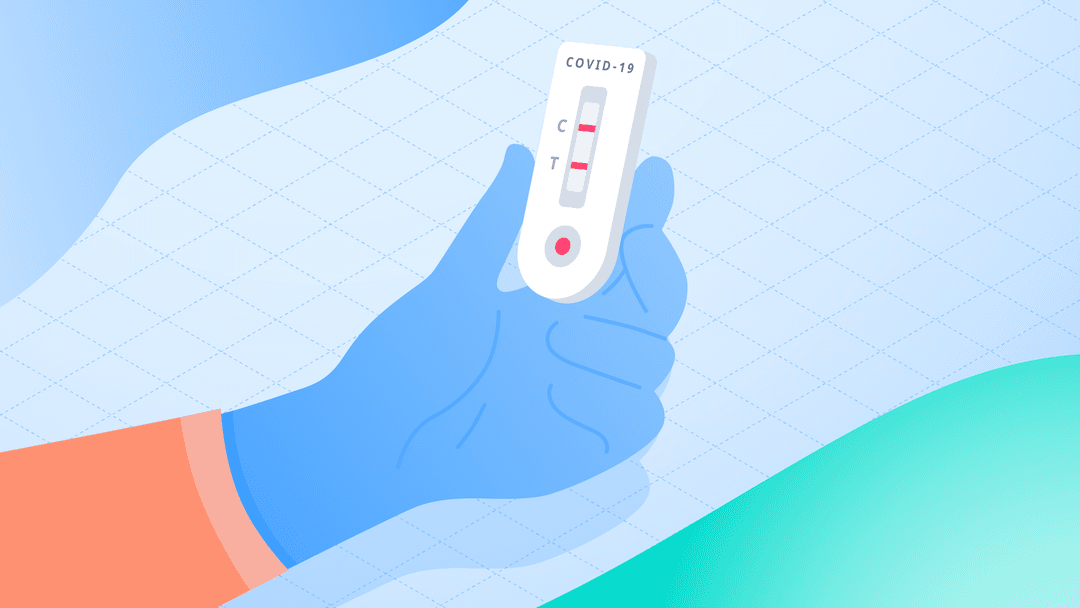What to expect with Omicron

In November 2021, the WHO identified a new variant of COVID-19: Omicron. This variant spreads faster than previous ones. While it generally causes less extreme symptoms, it’s still very important to protect yourself against infection. 1 2
Think you might be experiencing COVID-19 symptoms?
Protecting yourself against Omicron
By now, you know all the precautions you need to take to lower your risk of getting COVID-19:
- Get vaccinated
- Wear a well-fitting mask
- Maintain social distance
- Open windows for ventilation
- Avoid crowded places
- Keep your hands clean
If you suspect you may have any variant of COVID-19, take an antigen or PCR test to confirm. If you do have COVID-19, you may be eligible for treatment.
Omicron symptoms show up sooner
Omicron has a shorter incubation period than earlier variants of the virus. That means symptoms show up more quickly after initial infection. For Omicron, the incubation period is 2-3 days. About 40% of people will not show any symptoms. 3
If you begin to feel any cold or flu-like symptoms, take a COVID-19 test immediately. If you get a negative result but still feel unwell, test again after 48 hours. You may not test positive in the early stages of an infection as the level of virus in your system may still be too low to be detected.
First symptoms of Omicron
Omicron’s day-by-day symptom timeline is also shorter than previous COVID-19 variants. In general, symptoms of Omicron last 6-7 days but may be present for longer.
Omicron usually manifests as upper respiratory tract symptoms and often resembles a common cold. People who contract Omicron are also less likely to lose their sense of taste and smell. 4
You should watch out for:
- Sore throat
- Runny nose
- New, persistent cough
- High temperature
- Muscle and body aches
- Unexplained fatigue
- Headaches
If you have any of these symptoms, take every precaution to avoid passing a potential infection on to others. You are most contagious in the first 5 days of symptom onset.
Treating Omicron symptoms
If you experience severe symptoms, always contact a healthcare professional for advice. If symptoms are mild, self-care at home should help relieve your symptoms.
- Take over-the-counter pain medication to relieve aches
- Get plenty of rest
- Drink lots of water, especially if you have a fever
- Take cough medicine if needed
A healthcare professional may also be able to prescribe treatment.
Take care of yourself,
Ada
CDC (2025). Variants of the virus. Accessed on May 25, 2025.
CDC (2025).[“COVID-19]. Accessed on May 25, 2025.
Yale Medicine (2023) Omicron and its Subvariants: A Guide to What We Know. Accessed on October 23, 2023.
Vihta K. et al. (2022). “Omicron-associated changes in SARS-CoV-2 symptoms in the United Kingdom”. Accessed on October 23, 2023.